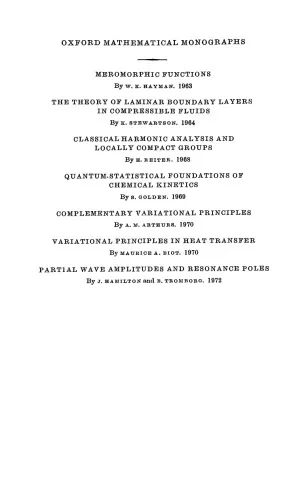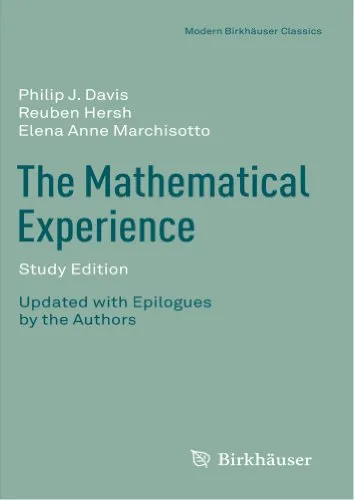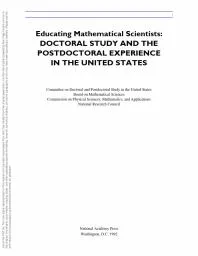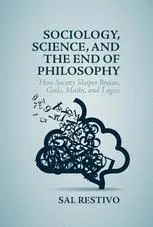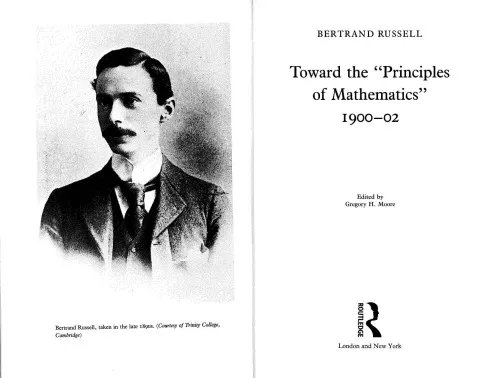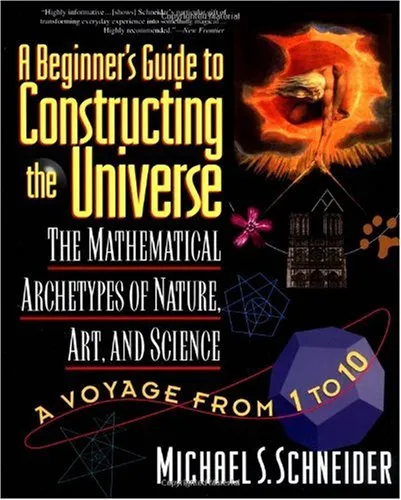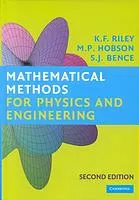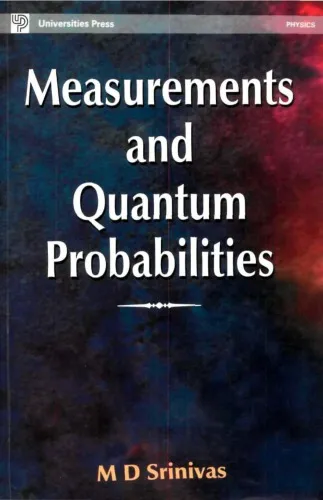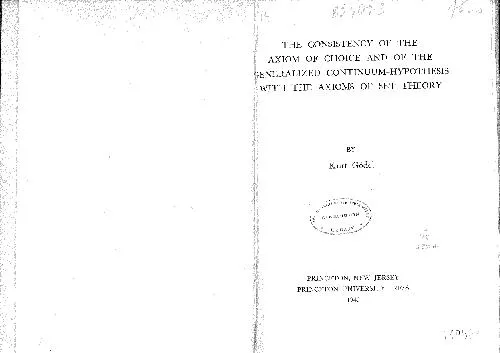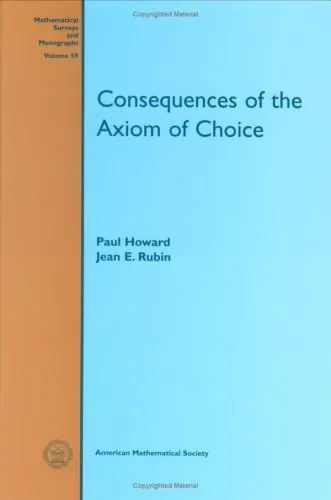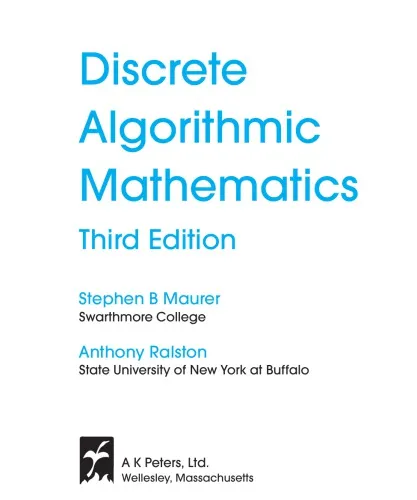The Distribution of Prime Numbers: Large Sieves and Zero-density Theorems
4.0
Reviews from our users

You Can Ask your questions from this book's AI after Login
Each download or ask from book AI costs 2 points. To earn more free points, please visit the Points Guide Page and complete some valuable actions.Related Refrences:
Introduction to "The Distribution of Prime Numbers: Large Sieves and Zero-density Theorems"
"The Distribution of Prime Numbers: Large Sieves and Zero-density Theorems" is a pivotal work in the field of analytic number theory, authored by M.N. Huxley. The book delves deep into the fascinating and intricate study of prime numbers, which have long been a cornerstone of mathematical inquiry. By focusing on advanced tools like the large sieve methods and zero-density theorems, the book offers readers an exquisite exploration of the mathematical patterns underlying prime distribution. This work is designed not only to appeal to professional mathematicians but also to spark curiosity and understanding in students and passionate enthusiasts of the field.
Detailed Summary of the Book
The book opens by introducing the historical evolution of number theory, emphasizing the peculiar yet universal significance of prime numbers. It quickly establishes the centrality of primes in modern mathematics and their numerous applications in fields ranging from cryptography to theoretical physics.
At its core, the book investigates two crucial mathematical tools: the large sieve method and zero-density theorems—both integral to understanding the distribution of primes. The large sieve, a combinatorial principle refined into an analytic tool, is presented in its modernized form. With rigorous yet clear explanations, readers are walked through its application to sequences and residues, showcasing why this method is indispensable in bounding the error terms in prime-related problems.
Following this, the discussion transitions to zero-density theorems, which have fascinating implications for the Riemann zeta function and its role in understanding primes. The book explores regions of the critical strip where potential zeros of the zeta function might lie, discussing how these results affect the accurate estimation of prime counts across intervals. Through this lens, the book paints a vivid picture of the interplay between the primes and the mysterious zeros of functions in analytic number theory.
Structured with mathematical precision, each chapter builds seamlessly upon the last. The author introduces relevant mathematical techniques, such as exponential sums, Fourier analysis, and sieve theory, to stitch together a comprehensive framework for addressing complex problems. Challenges posed by asymptotics and error bounds in prime-distribution studies are dissected and resolved using elegant principles. Its depth of insight makes it indispensable for those aspiring to grapple with open problems in analytic number theory.
Key Takeaways
- Deep dive into the large sieve method and its applications in bounding prime gaps.
- Exploration of zero-density theorems and their consequences for the distribution of nontrivial zeros of the Riemann zeta function.
- In-depth treatment of prime number counting functions and their asymptotics.
- Bridging classical and modern methods in sieve theory to solve combinatorial number theory challenges.
- Thorough contextualization of major problems in number theory, such as the distribution of primes in arithmetic progressions.
Famous Quotes from the Book
"The prime numbers form the indivisible atoms of arithmetic, yet their distribution displays a complexity that belies their simple definition."
"Each zero of the zeta function carries with it a secret about the primes; to reveal it is to come closer to understanding the mind of mathematics itself."
"A sieve does not solve the mystery of primes—it instead clears the stage, removing the noise and leaving behind a primordial order."
Why This Book Matters
This book occupies a unique position in mathematical literature. By combining the historical depth of classical tools with the rigor of modern techniques, M.N. Huxley creates a work that is both intellectually satisfying and forward-looking. The treatment of large sieve methods and zero-density theorems addresses critical components in understanding the mysteries surrounding prime numbers. Furthermore, the book sheds light on the connections between the distribution of primes and outstanding problems like the Riemann Hypothesis, reminding us of the shared goals that unite number theorists worldwide.
Practically, the ideas presented have applications far beyond pure mathematics. The analytic tools and principles discussed underlie many breakthroughs in cryptography, communication technologies, and theoretical computer science. Thus, any reader aiming to delve into number theory or even its applied ramifications will find this text a springboard into broader research and discovery.
For students, researchers, or mathematicians seeking insights into one of the oldest and most intriguing problems in mathematics, "The Distribution of Prime Numbers: Large Sieves and Zero-density Theorems" is an essential guide. Its clarity, depth, and comprehensive coverage set it apart as a seminal work in the field.
Free Direct Download
You Can Download this book after Login
Accessing books through legal platforms and public libraries not only supports the rights of authors and publishers but also contributes to the sustainability of reading culture. Before downloading, please take a moment to consider these options.
Find this book on other platforms:
WorldCat helps you find books in libraries worldwide.
See ratings, reviews, and discussions on Goodreads.
Find and buy rare or used books on AbeBooks.
1258
بازدید4.0
امتیاز0
نظر98%
رضایتReviews:
4.0
Based on 0 users review
Questions & Answers
Ask questions about this book or help others by answering
No questions yet. Be the first to ask!
